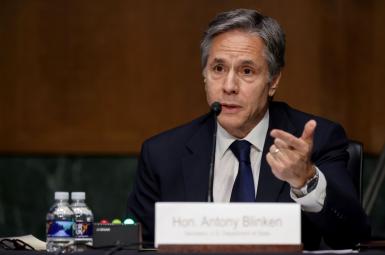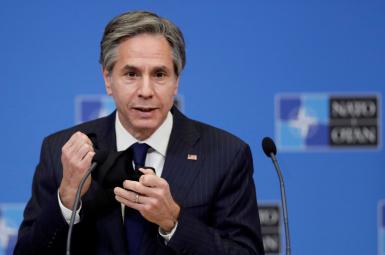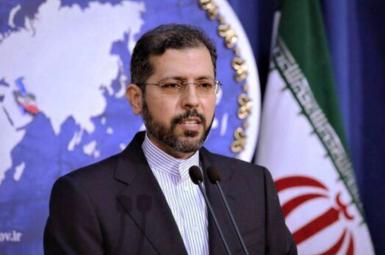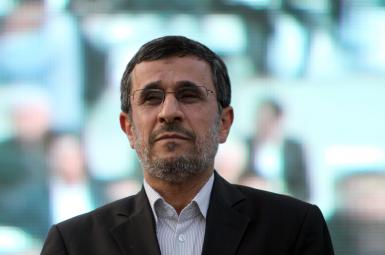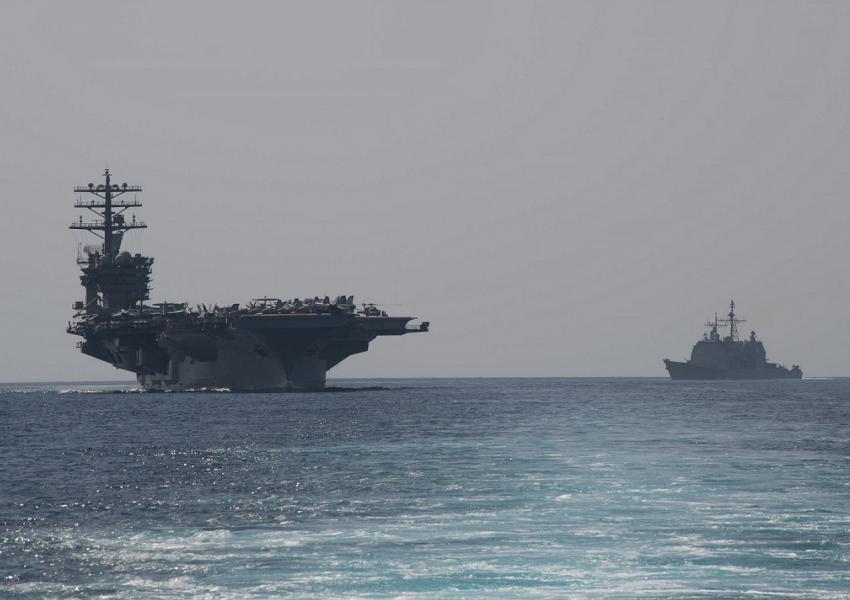
USS Nimitz Ordered To Remain In Region Due To Iran Threats
Christopher Miller, the Acting United States Secretary of Defense, has reversed a decision to bring home an aircraft carrier from the Middle East due to “recent threats issued by Iranian leaders against President Trump and other US government officials,” the Pentagon said on Monday. In a statement issued to the press, Miller said he had ordered the USS Nimitz to halt a “routine deployment.”
American media reported on Friday that Miller, against advice from some in the Pentagon, had ordered the ship withdrawn as a de-escalatory gesture, with the New York Times suggesting Trump might not have been informed. Miller is in place after Trump “terminated” Mark Esper on Twitter in November, amid disagreement over using troops to quell protests, just after losing the presidential election.
“The USS Nimitz will now remain on station in the US Central Command area of operations,” Miller’s statement read. “No one should doubt the resolve of the United States of America.” Central Command, or Centcom, covers the Middle East, Central Asia and parts of south Asia.
In the past few days some Iranian officials have talked up revenge for the US killing Qasem Soleimani, commander of Iran’s extra territorial Qods Force, in Baghdad on January 3, 2020 on the order of President Donald Trump. The killing, by missiles fired from a drone, was deemed illegal by a United Nations report in the summer that said no evidence had been produced that the ten killed presented an “imminent threat” to the US. Last week Iran’s Chief Justice Ebrahim Raeesi announced Iran would bring international legal action against Trump.
In a speech on Friday at Tehran University marking the first anniversary of Soleimani’s death, his successor Brigadier-General Esmail Ghaani said men might be found anywhere in the world ready to punish those responsible. Some lawmakers who spoke to Kayhan newspaper quoted Ghaani as saying at a closed parliament session on December 30 that Soleimani’s killers would need to live in hiding just like British-Indian writer Salman Rushdie, who was sentenced to death in 1989 by Ayatollah Ruhollah Khomeini, founder of the Islamic Republic. “They have to know that even from within their house there might be people willing to retaliate this crime,” Ghaani declared.
There were anti-American protests in Baghdad on the anniversary of the drone strike, whose victims included five Iraqis. Feelings were already enraged after Trump in December pardoned four Blackwater guards convicted of killing 14 unarmed Iraqi civilians in Baghdad in 2007.
Iran has repeatedly vowed to take revenge for Soleimani, a main architect of Iran’s network of state and non-state allies and proxies in the region. Some analysts have argued his death has weakened Iran, while others say the killing grabbed attention but achieved nothing.
The final days of the Trump presidency have been marked with a series of military maneuvers. Associated Press on December 31 quoted an American officer that the US had dispatched two B52 bombers from the US to briefly overfly the Persian Gulf on December 30 because signs that Iran had made preparations for possible attacks on US or allied targets in Iraq or elsewhere in the Mideast had been detected. The Nimitz and other warships arrived to provide air cover for American troops withdrawing from Iraq, Afghanistan and Somalia.

